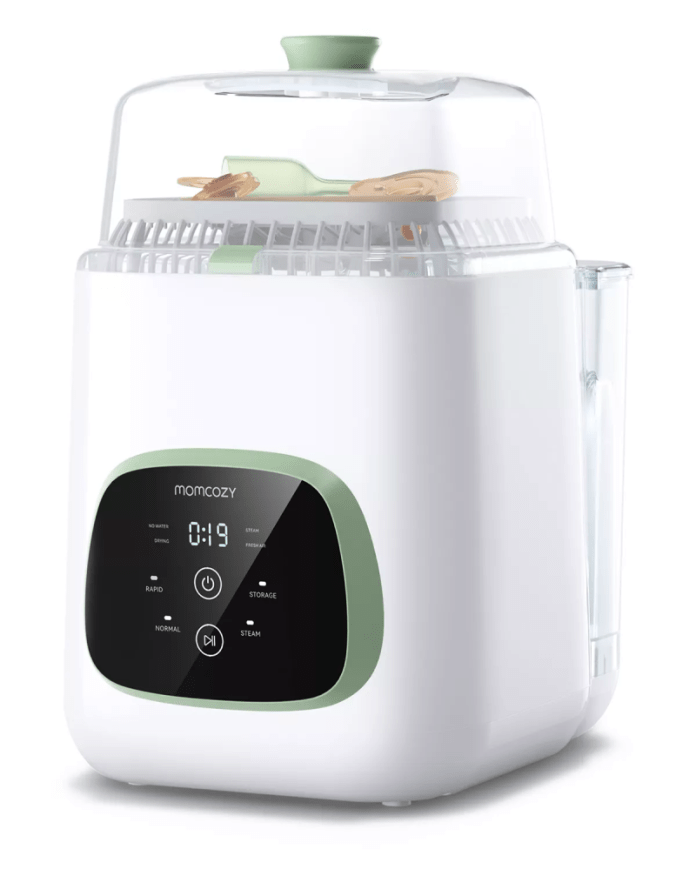
Parenthood is busy enough without adding “scrub another bottle” to the never-ending to-do list every couple of hours. Between feedings, naps, and chasing laundry piles, the idea of a machine quietly handling the bottle-washing part of your life sounds… well, tempting.
Automated bottle cleaning tech has been making its way into more homes lately, and parents are divided — some sing its praises, others aren’t convinced it’s worth the space or price tag. I wanted to dig into what’s behind those opinions and whether these gadgets really deliver.
We’ll walk through the perks and the pain points, so by the end, you can decide whether one of these devices belongs on your counter or belongs firmly in the “maybe someday” category.
Introduction
Keeping baby bottles clean is a deceptively big job. You’re not just rinsing them out — you’re trying to keep every sip your baby takes safe from lingering germs. That level of sanitation can be tedious, especially when you’re doing it multiple times a day.
That’s where automated options, like a dedicated baby bottle cleaner, step in. These devices promise to simplify the process, but not every parent is ready to hand over the sponge just yet. Some trust the convenience, while others still have that nagging “but did it really get everything?” feeling.
It’s a fair question. No one wants to trade in elbow grease for a false sense of security. Still, the appeal is obvious — less time at the sink, more time to breathe.
Here’s what usually tips the scales for parents considering these machines:
- Time-saving: No more washing each bottle individually.
- Ease of use: Push a button and walk away.
- Effectiveness: Many claim 99.9% germ elimination.
Technological Advancements in Automated Bottle Cleaning
Modern baby bottle cleaners are surprisingly sophisticated. Some use pressurized water jets, others rely on high-temperature steam or UV light to sterilize. In the case of the Momcozy KleanPal Pro Baby Bottle Washer and Sterilizer, you get a combo approach — thorough washing plus heat sanitizing — all in a countertop-friendly design.
Typical features include:
- High-temperature steam cleaning: A chemical-free way to sanitize.
- UV light sterilization: Adds a no-contact layer of cleanliness.
- Compact designs: Meant to live on your counter without hogging it entirely.
It all sounds great on paper, but parents still ask whether a gadget can scrub as deeply as human hands. And then there’s the question of cost — some models aren’t exactly budget-friendly, so the “worth it” conversation often comes down to how much you value your time versus your money.
Factors Influencing Parental Acceptance
Hygiene and Safety Concerns
Safety always tops the list. A baby bottle cleaner that doesn’t truly sanitize is just an expensive rinse cycle. Even with claims of eliminating nearly all germs, some parents prefer the visible reassurance of a manual scrub.
Convenience and Time Efficiency
When you’ve got exactly five free minutes all day, the idea of dropping bottles into a machine and walking away is almost magical. But for a few parents, “set it and forget it” can feel too detached — like they’re not sure if the job’s really done unless they see it themselves.
Economic Considerations
Prices run anywhere from $50 to $200. For some families, that’s an easy “yes” if it means reclaiming time. For others, it’s a luxury they’d rather skip in favor of old-fashioned dish soap.
Environmental and Resource Factors
There’s also the eco-angle. Machines use water and electricity, and that matters to a lot of parents trying to live a bit greener. Picking an energy-efficient model can make the decision easier.
Barriers to Adoption
Even with all their promise, automated bottle washers come with a few hurdles:
- Cost concerns: The upfront price can be a sticking point.
- Effectiveness doubts: Worries about missed spots or lingering residue.
- User-friendliness: If it’s fussy to operate, it’s just another chore.
- Space limitations: Not every kitchen can spare the counter real estate.
- Maintenance needs: Filters and internal cleaning add to the upkeep.
- Environmental impact: The added energy use isn’t for everyone.
Cultural and Social Influences
Parents don’t make these choices in a vacuum. Cultural norms, friend groups, and even parenting forums influence whether someone takes the leap.
- Trust in tech: Some believe in automation wholeheartedly.
- Skepticism: Others feel a human scrub is the only “real” clean.
- Peer influence: If friends rave about their machine, you’re more likely to consider one.
- Economic pressure: Price sensitivity varies widely.
- Environmental values: Those prioritizing sustainability may hesitate.
Psychological Aspects of Adoption
A lot of the debate boils down to trust. Do you trust the machine to do what it says? Do you trust it enough to put away the bottle brush entirely?
For parents juggling work, errands, and baby care, convenience is persuasive — but only if it comes without a sacrifice in cleanliness. Cost, space, and even subtle social pressures all swirl into the decision-making process.
Future Trends in Parental Acceptance
As these machines get better — faster cycles, smarter cleaning methods, more eco-friendly designs — acceptance will likely grow. Price will still matter, but so will proof. Show parents that the bottles coming out of a baby bottle cleaner are as clean or cleaner than those scrubbed by hand, and you’ll have more believers.
Conclusion
Right now, automated bottle cleaning sits in a middle ground — beloved by some, questioned by others. Parents weigh trust, convenience, and cost, then factor in a dash of cultural influence and personal values.
For some, like those who’ve tried the Momcozy KleanPal Pro Baby Bottle Washer and Sterilizer, the convenience outweighs any lingering doubts. For others, nothing beats soap, water, and a good rinse under their own watchful eye.
Either way, the conversation keeps coming back to balance: safety, time, and what feels right for your family. And if the tech keeps improving, that balance may start tipping in favor of the machines.










